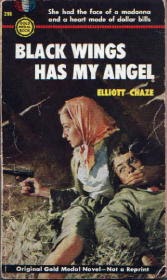Stephens returns with Dwellings (Oni, Apr.), a horror anthology drawn in the style of 1960s kids comic books.
I immediately think of your kid-friendly work when I see your name, so Dwellings was a real surprise. How did this turn come about?
It’s really a pandemic-era personal project. I had been working steadily in kids’ magazines, but people weren’t able to go out and buy magazines in person. Schools and libraries, the biggest subscription market for kids’ magazines, were closed.
Meanwhile, I’d been playing around with some horror scripts for local Canadian filmmakers—I do love the genre. I hit upon the idea to draw horror like I draw my cute stuff. It was kind of an instant, spontaneous cooking recipe. “What if I just threw this at it?” I went with the classic ’60s American kid comic style, like the Harvey Comics specifically—Casper, Wendy, Hot Stuff. The macabre, vaguely supernatural characters that I grew up with—that sort of hint of horror, I decided to push it as far as I could. It’s not as if cute horror hasn’t been done before. It’s quite common in manga.
I thought of the cute-scary manga by creators like Shigeru Mizuki, Kazuo Umezz, and Osamu Tezuka.
Umezz in particular is a huge influence. I found Maurice Horn’s World Encyclopedia of Comics at my library early in my life. Most of that work had not been translated in any way in the 1970s, and even in the 1980s. But the handful of reproduced images in there fascinated me. I spent decades trying to find that stuff again—and as soon as I got my hands on Cat-Eyed Boy and Kitaro, I felt, that’s it.
Were there any particular films that influenced Dwellings?
The film version of The Turn of the Screw—The Innocents, from 1961. It’s a ghost story that could be taken literally, or as an internal, mental breakdown. A story that works both ways? That’s the best stuff.
I am, admittedly, a huge horror fan, to the point that I like to think I’m an aficionado. I watch a lot more than most people would, which also means that I watch a lot of garbage. Ninety percent of the current slate of horror movies are pretty bad. But the psychological horror that A24 is doing is right up my alley.
Why do you think it made such a connection with readers, from when it was first crowdfunded and released as a series?
Honestly, the gimmick of it makes people pick it up. But for me, what readers are responding to is my passion for art-house horror. The stories aren’t cutesy or comedic, they’re told straight. But there’s something about the cuteness that disarms, draws you in and attracts you to these characters, so that when the worm turns, it ends up a little more shocking.
A version of this article appeared in the 03/18/2024 issue of Publishers Weekly under the headline: Scary Cute

